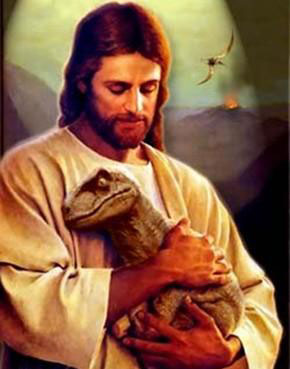“I believe that we are all spiritual beings having a human experience, and not the other way around.” — This is the fourth Spirituality Corner post in an ongoing series.
This post begins with the prologue to a novel I wrote in 2005 called We Are Stardust. It’s the story of a psychic who discovers via her visions that the Antichrist is the President of the United States. The President is equally psychic, and the two of them get locked in a battle of wills that sometimes is more of a tango of divine adversaries. I’m using this prologue as the starting point of a dialogue I’d like to open up, regarding (as the title says) God, the Devil and the Void. (The “Void” part is designed to let atheists and agnostics know that they are most welcome in this discussion.)
*
“Little children, it is the last time: and as ye have heard that antichrist shall come, even now are there many antichrists; whereby we know that it is the last time.” (1 John 3:18)
According to Christian prophecies of the End Times, the Antichrist in human form will function as Satan’s second in command during the apocalypse. It is widely assumed that he will ascend to a position of great worldly power through his promise of peace in a volatile era. Like his immediate superior, Lucifer/Satan, the Antichrist is frequently depicted as someone of infallible personal charisma.
Contrary to unrelenting dramatic portrayals in popular culture, the Antichrist will not arrive bearing the countenance of a maleficent, horned demon. Instead, since he is the shadow realm’s reverse doppelganger of Christ, he will incarnate fully prepared to emulate convincingly the hallowed, human qualities of Jesus Himself. Using a wealth of Christian aphorisms and references, the Antichrist will deliberately lead all but the most perceptive of his followers down the path of wickedness.
The term ‘Antichrist’ may also be associated with a collective or collaborative energy: dark forces or forces of evil. These malevolent influences fulfill an essential purpose in the cycles of creation. Corresponding to spirit collapsing into matter, they epitomize the proverbial fall from grace. The dark forces prevent humanity from rising up towards the exaltation of spirit, symbolized by the idea of ascension into heaven.
This spellbinding drama of Good versus Evil is universal. Throughout the ages, it has inspired some truly great theatrical performances (e.g., the collective works of William Shakespeare), as well as enduring philosophical debate, bewildering political diatribe and trite blockbuster action films that range in quality from abysmal to mediocre.
People who believe in the concept of Heaven endeavor to identify themselves with the principle of good. However, there are others without a moral or religious bias. While not condoning evil deeds or evildoers, these individuals’ inquisitiveness may predispose them to seek an objective comprehension of the motivations of evil actions.
Rejecting the concept of sinners consigned to Hell, these free thinkers subscribe to the belief that contrition and forgiveness are every human being’s birthright. They are the disciples of a radically extremist notion that preceded formal Christianity: the kingdom of heaven is within you – a quote widely attributed to the rebel Jesus.
Although good and evil are often considered polar opposites, more precisely, they are counterparts: the existence of one validates the other. Creation’s full spectrum unfolds in a cyclical synthesis of light and dark; life and death; heaven and hell; good and evil… each individual pair designed in perfect complement of each other.

Regardless of whether you believe in God, the Devil, or/and the Void, you most likely have empirical opinions about other absolutes: life and death, light and darkness, good and evil, love and hate/indifference, truth and deception, etc.
I believe that life is never black and white: it is varying shades of grey, and all polarities in manifestation. So while there may be a need for religious people to believe in an absolute good (God, heaven) and an absolute evil (Satan, hell), non-religious people may view the world through a completely different prism. To them, the concept that all we are is stardust, free-floating in the void, makes rational sense. As someone who believes in God but has never been a member of any religion, I find that I am often standing in the balance between these two worlds.
Witnessing the agony, turmoil, brutality, hatred and hopelessness that seem to be omnipresent, I have frequently questioned how any all-powerful creator could ever allow this. But witnessing the stark nihilism of some – very far from all, I must emphasize – non-believers seems equally nonsensical to me. For me, the middle ground is accepting my human insignificance while embracing the blessing of my human experience. I am fascinated to discuss spiritual subjects with people on every point of the spectrum of belief, because I want to understand what brings people to believe what they do.
What I’d like to know in the comments – in addition to any critique regarding this post – is:
- What are your beliefs regarding the concepts of God, the Devil and the Void?
- How have your current beliefs been influenced by the inculcation of parents, teachers, clergy, etc. in childhood?
- What other spiritual influences shape these beliefs in these “ultimate” themes?
The Meaning of Life











 Love thy neighbor’s dinosaur. (Testing to see if I can fix this post) Fixed!
Love thy neighbor’s dinosaur. (Testing to see if I can fix this post) Fixed!